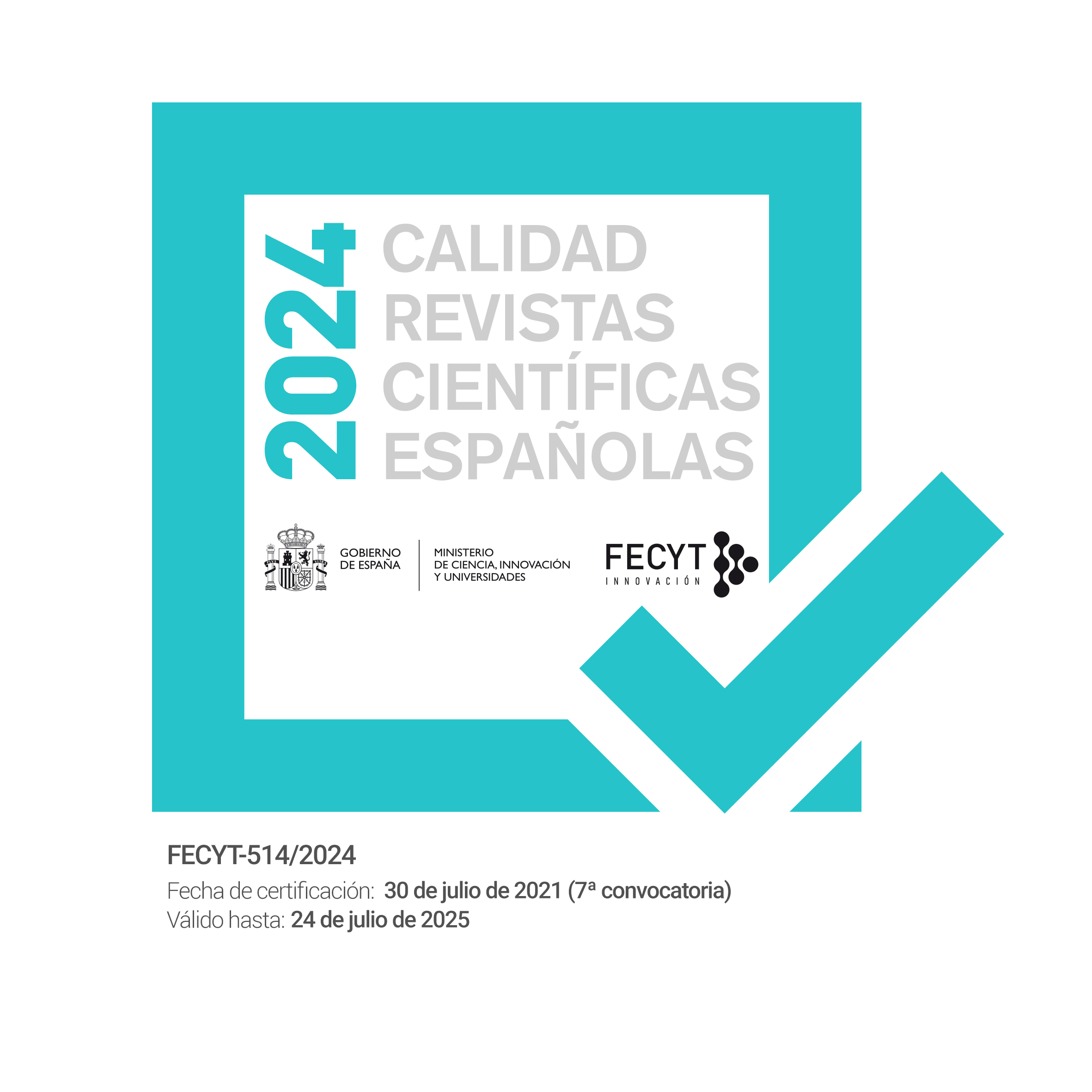CONSTRUING ACTS OF VOICING IN CHRISTINA DALCHER'S VOX THROUGH VULNERABILITY METAPHORS
DOI:
https://doi.org/10.12795/REN.2022.i26.14Keywords:
vulnerability, acts of voicing, Vox, metaphor, Conceptual Metaphor Theory, dystopian literature, feminist dystopiaAbstract
In the digital era, where everyone’s voice can, potentially, reach the entire world, Dalcher’s dystopian novel, Vox, expresses a very real fear of being silenced. In modern America, a purist movement voted into power has silenced all women and girls overnight. The novel investigates the intersection of physicality and the immaterial essence of words. The narrator’s voice, sober but without restriction, contrasts sharply with the limitations imposed around her and uncovers the silent horror of a dystopian America where half the population has lost all rights of self-disposal, both physical and discursive.
Employing the conceptual metaphor theory of Lakoff and Johnson (2003), this study explores metaphors in Vox that shape discourse(s) on voicing vulnerability and on voice as visibility through an interdisciplinary discourse analysis that draws on the fields of literature and sociolinguistics.
Downloads
References
WORKS CITED
BAMMAN, David, Brendan O’Connor, and Noah Smith. “Censorship and Deletion Practices in Chinese Social Media.” First Monday, vol 17, no 3, 2012.
BIEBUYCK, Benjamin and Gunther Martens. “Literary Metaphor between Cognition and Narration: The Sandman Revisited.” In Beyond Cognitive Metaphor Theory. Perspectives on Literary Metaphor. Routledge Studies in Rhetoric and Stylistics, 2011, pp. 58-76.
BROWN, Penelope. “How and Why are Women more Polite: Some Evidence from Mayan Community.” In Sally McConnell-Ginet, Ruth Borker, and Nelly Furman. Women and Language in Literature and Society, Preager Publishers, 1980, pp. 111-136.
CAVALCANTI, Ildney. “Utopias of/f Language in Contemporary Feminist Literary Dystopias.” Utopian Studies, vol. 11, no 2, 2000, pp. 152-180.
CHRZANOWSKA-KLUCZEWSKA, Elzbieta. “Catachresis – A Metaphor or a Figure in its own Right?” In Monika Fludernik, Beyond Cognitive Metaphor Theory. Perspectives on Literary Metaphor. Routledge Studies in Rhetoric and Stylistics, 2011, pp. 36-57.
COBBE, Jennifer. “Algorithmic Censorship by Social Platforms: Power and Resistance.” Philosophy & Technology, 34, 2021, pp. 739–766.
CUADRADO PAYERAS, Lidia María. “On Sight, Technology, and Science Fiction: Transhumanist Visions in Contemporary Canadian Dystopia.” Revista de teoría de la literatura y literatura comparada, 27, 2022, pp. 220-236.
DALCHER, Christina. Vox. Penguin Random House, 2018.
EDWARDS, Susan, and Christos Salis. “Aphasia from a Neurolinguistic Perspective.” Oxford Research Encyclopedias, Linguistics. Oxford University Press, 2016.
FISHELOV, David. Metaphors of Genre. The Role of Analogies in Genre Theory. Pennsylvania State University Press, 1993.
FLUDERNIK, Monika. Ed. Beyond Cognitive Metaphor Theory. Perspectives on Literary Metaphor. Routledge Studies in Rhetoric and Stylistics, Routledge, 2011.
FOUCAULT, Michel. “Of Other Spaces.” Translated by Jay Miskowiec. Diacritics, vol. 16, no 1, 1986[1967], pp. 22-27.
---. Discipline and Punish: The Birth of the Prison. Translated by Alan Sheridan, Pantheon Books, 1977[1974].
FREIRE, Paulo, and Macedo Donaldo. Literacy. Reading the Word and the World. Routledge, 1987.
HARVEY, Arnold David. Body Politic: Political Metaphor and Political Violence. Cambridge Scholars Publishing, 2007.
JAWORSKI, Adam. “How to Silence a Minority: The Case of Women.” International Journal of the Sociology of Language, vol 94, 1992, pp. 27-41.
JOHANNESSEN, Jon-Arid. The Emergence of the Fourth Industrial Revolution: An Historical Introduction to Knowledge Management and the Innovation Economy. Emerald Publishing. 2019.
LAKOFF, George, and Mark Johnson. Metaphors We Live By. The University of Chicago Press, 1980.
LAKOFF, Robin. The Logic of Politeness. The Chicago Linguistic Society, 1973.
LUNA, Florencia. “Elucidating the Concept of Vulnerability: Layers Not Labels.” International Journal of Feminist Approaches to Bioethics, Vol. 2, No. 1, Transnational Dialogues, Spring, 2009, pp. 121-139.
---. “Identifying and Evaluating Layers of Vulnerability – A Way Forward.” Developing World Bioethics, vol 19, 2019, pp. 86-95.
LYONS, John. Language and Linguistics: An Introduction (15th ed.). Cambridge University Press, 2002.
MANUGEREN, M. Literature in the Principal of Industrial Revolution 4.0. KnE Social Sciences, 3(19), 2019, pp. 29–42.
PETTERSSON, Bo. “Literary Criticism Writes Back to Metaphor Theory: Exploring the Relation Between Extended Metaphor and Narrative in Literature.” In Beyond Cognitive Metaphor Theory. Perspectives on Literary Metaphor. Edited by Monika Fludernik, Routledge Studies in Rhetoric and Stylistics, 2011, pp. 94-112.
PINAKOULIA, Maria. “Female Struggle and Negotiation of Agency in Christine Dalcher’s Vox.” Ex-centric Narratives: Journal of Anglophone Literature, Culture and Media, no 4, 2020.
SCHWAB, Klaus. The Fourth Industrial Revolution. World Economic Forum. 2016.
SISK, David W. Transformations of Language in Modern Dystopias. Greenwood Press, 1997.
SUVIN, Draco. Metamorphoses of Science Fiction: On the Poetics and History of a Literary Genre. Yale University Press, 1979.















